Change Is Coming: It's Not A Question Of If Big Tech Buys Media Companies, It's When | Clay Travis
Netflix won the streaming wars and destroyed the cable and satellite bundle in the process.
It's not just because Netflix built the superior streaming service and is the only company in the streaming business to actually make a profit -- everyone else has lost billions while Netflix has made billions -- but because the success of Netflix led Disney, Comcast, and Paramount to all abandon the greatest media business in world history -- the cable and satellite bundle -- and rush to compete with Netflix in streaming.
Instead of building their own strong and successful streaming businesses, all of them destroyed their existing cable and satellite profits even faster than they otherwise would have all while losing billions in streaming.
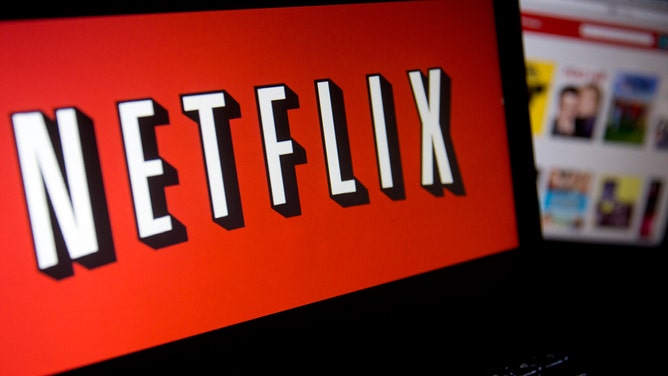
Getty Images
Media As We Know It Has Been On The Decline For Years
It's true that cable and satellite were headed for a slow decline in the years ahead, but by pursuing Netflix and starting their own streaming services, all of these media companies hastened their own demise. (The only company that didn't crazily enter the streaming war was Fox, which sold $71 billion in streaming assets to Disney at the absolutely perfect time, creating massive value for itself by avoiding the catastrophic streaming profits bonfire. But that's for another story I may write in the months ahead.)
Now the question is, what's next?
I think the answer is the big tech companies invested in streaming, sports, and original content -- Apple, Amazon, Google and Netflix -- should buy all these media companies and roll them into their existing streaming ecosystems. Before I explain why this makes sense, an interesting couple of thoughts as background.
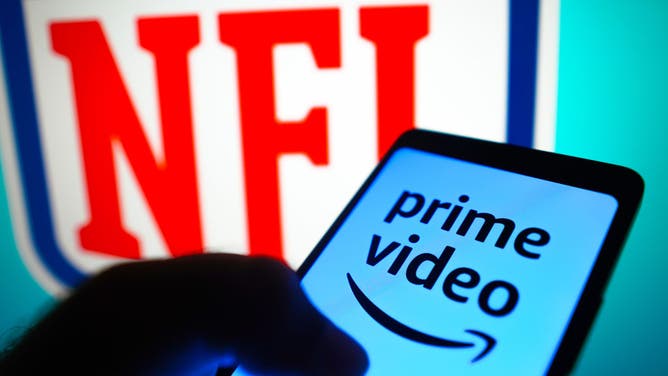
Photo Illustration by Rafael Henrique/SOPA Images/LightRocket via Getty Images
Back In The Day…Long, Long Ago…Before Social Media And iPhones
When I started working in sports media 20 years ago way back in 2004 -- that's when I wrote my first articles online -- big tech was just emerging on the scene. When I first started writing online, the best way for a story to go viral was via email. Or to get picked up on listicle sites inside of big company websites. ESPN's Page 2, SI's Hot Clicks, College Humor, Fark -- remember those? -- there was no real social media. Back in those days people had the decency to tell me to kill myself via an actual email, as opposed to via Twitter.
They were simpler, and kinder, times.
I still remember the first time I saw an iPhone. I was training for the NFL Combine alongside top college athletes in 2008, really, I did this. The fact this book never got published is a travesty. (My publisher said they weren't sure whether there was a market for NFL Draft stories. Simple truth, New York City publishers typically aren't big sports fans, so they didn't believe me when I told them the draft was a big deal and lots of people cared about it.) So while I was getting ripped benching 225 up to seven times -- it happened -- and posting 5.5 forty's, all the athletes got a gift from their agents -- brand new iPhones.
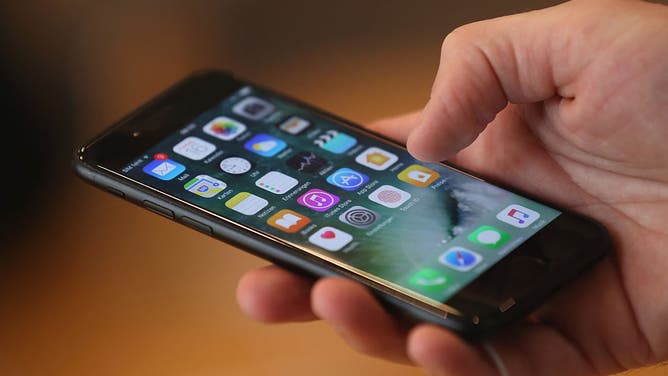
Photo by Sean Gallup/Getty Images
This was in January of 2008, I still had a Blackberry, which I was convinced was the baddest ass phone that had ever been made, and I remember testing out their phones and not thinking the new iPhone was that great. Hindsight is 20/20 and every now and then I've thought, "I should have put every spare dollar in Apple stock back then, I was a total idiot," but the reality is I had no spare money back then. Heck, I didn't have much money period. In 2008 I was about to have my first kid and I was making $40,000 a year. We had just moved into a brand new house, it cost $365,000 brand new in downtown Nashville, right by Germantown for those of you who know Nashville, and I had a net worth of minus several hundred thousand dollars.
I was about to start my first ever nightly radio show on 104.5 the Zone with Chad Withrow, who now hosts "Hot Mic" daily on the OutKick network. We were paid, and I kid you not, $50 a show each. $100 total, for a two-hour Tuesday night show called "ClayNation." (He gets paid better than that now. So do I.)
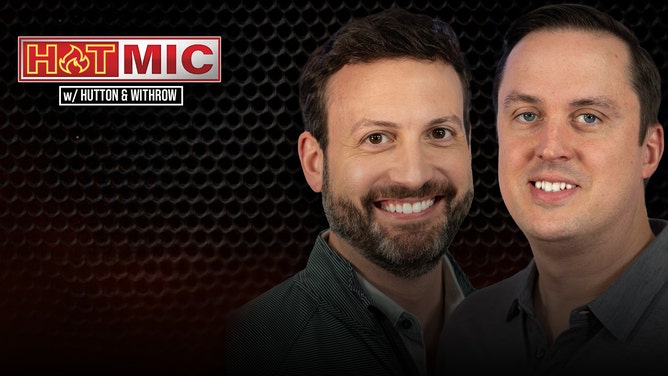
Over the next several years, as big tech grew in influence, the big topic in sports media was when will big tech companies get involved in sports rights?
Some argued they never would.
For a decade or more, these big tech companies claimed they weren't interested in sports rights, that it was a bad business and didn't fit what they were building.
But then it all changed.
Suddenly the big tech companies want in on sports.
It Happened: Big Tech Got Into Sports…Big Time
Consider this, Apple has MLS -- and tried to get a deal done to take over the Pac 12 --, Amazon has the NFL on Thursday nights, is now going to reportedly pay more than $100 million for one NFL playoff game, and is trying to get involved in a big way in the regional sports marketplace with MLB and the NBA, Google's YouTube service bought the NFL Sunday Ticket and Netflix just paid $5 billion to the WWE for WWE Raw over the next ten years.
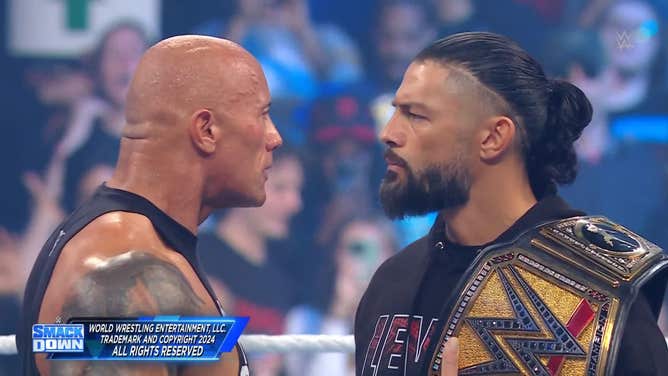
The Rock and Roman Reigns, via WWE.
All of these companies are now all in on sports rights because they realize sports offers a compelling way to build up their streaming businesses.
So the question of whether the big tech companies would ever buy sports league assets has been decided, and the answer is a resounding yes.
Over the next 10 to 15 years all sports, I believe, will move to streaming.
Yes, even the Super Bowl.
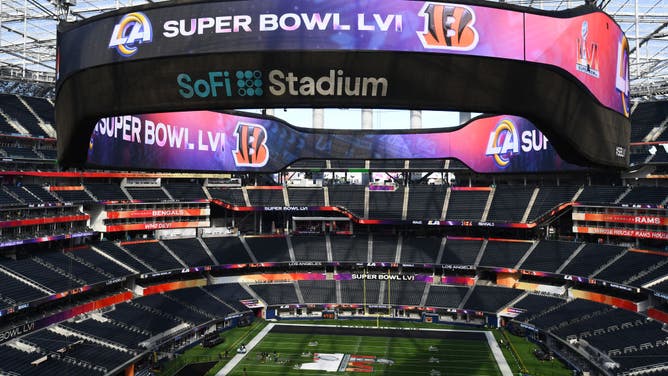
INGLEWOOD, Calif. - A view of the SoFi Stadium field during Super Bowl LVI media availability day on Feb. 8, 2022, before the game between the Los Angeles Rams and the Cincinnati Bengals. (Photo by Brian Rothmuller/Icon Sportswire via Getty Images)
Okay, so if we've established the big tech companies are moving into the sports arena, why wait to establish their primacy? Why not go after ESPN, Fox Sports, CBS, and NBC for their sports rights?
It's a no-brainer.
Which I'll come back to in a moment. Because buying these media companies doesn't just make sense in sports, it also makes sense for all the content these companies are already producing.
Time for another story.
Hey…Let's Put Streaming Shows On Broadcast TV And See What Happens
During the recent writers and actor's strike, all the TV networks struggled to come up with new programming because they couldn't make new scripted shows with the writers and actors on strike. So they often created reality television shows, things that didn't require writers or actors, and repurposed old content. But Paramount did something really interesting, they took "old" streaming content, the series "Yellowstone" and they put it on their CBS TV network.
And guess what happened?
"Yellowstone" season one dominated the ratings on CBS. According to a Deadline article from October of 2023, "Nearly 21.6 million viewers have tuned in to at least one episode on CBS, and over half (52%) are new to the series, having not seen a single episode in the past year on either linear or streaming, according to the network."
CBS then followed the success of this experiment by airing seasons two and season three of "Yellowstone" and the audience expanded to more than 33 million viewers and dominated the ratings on CBS for Sunday nights.
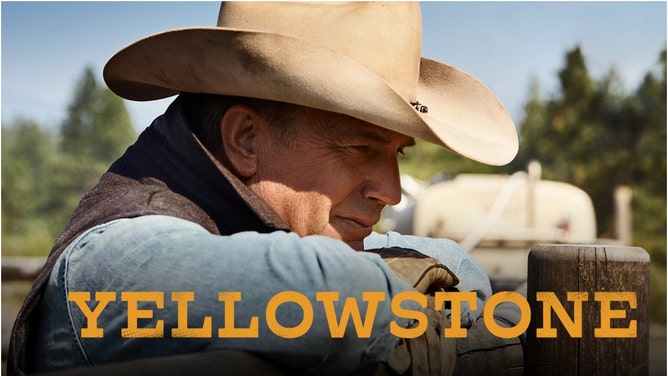
Credit: Paramount Network
It turns out that there's a massive audience of people that loved "Yellowstone," but would have never seen it if it hadn't aired on CBS, a broadcast network. They weren't streaming customers, but it turned out they loved streaming content.
This isn't a new phenomenon, "Breaking Bad" actually became a breakout star because old seasons of the show got popular on Netflix and then many people tuned in to watch new seasons on AMC. But "Breaking Bad," was an original TV series that got popular on streaming. That still happens. "Suits" dominated on Netflix this past fall. Tons of people who would have loved "Suits" had no idea it ever existed until Netflix started to air it.
But "Yellowstone," to my knowledge, is the first streaming show that became a hit on TV. CBS proved that the benefit didn't just run from TV to streaming, it also ran from streaming to TV.
And the story of "Yellowstone's," TV success got me thinking: how many other popular streaming shows, that is shows that never aired on TV before, would dominate on network television? That is, how many people would absolutely love shows they have no idea exist because they aren't a part of the streaming ecosystem yet?
I think the answer is tens of millions, an absolute ton of people.
Which leads to this big idea that also dovetails with my sports discussion above: big tech streaming services are missing tens of millions of people on their streaming services who would otherwise love their content. Every streamer should use old show seasons to air on the existing broadcast networks.
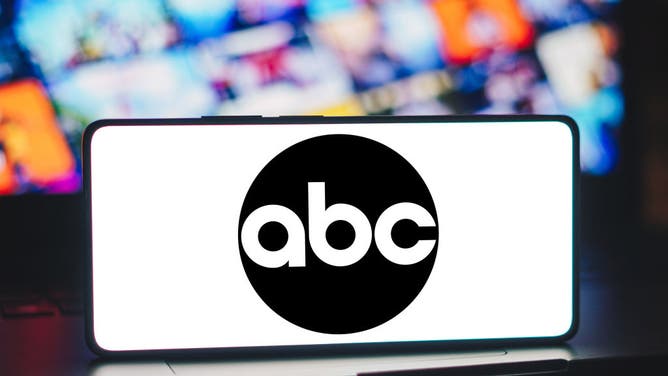
Photo Illustration by Rafael Henrique/SOPA Images/LightRocket via Getty Images
(GETTY IMAGES)
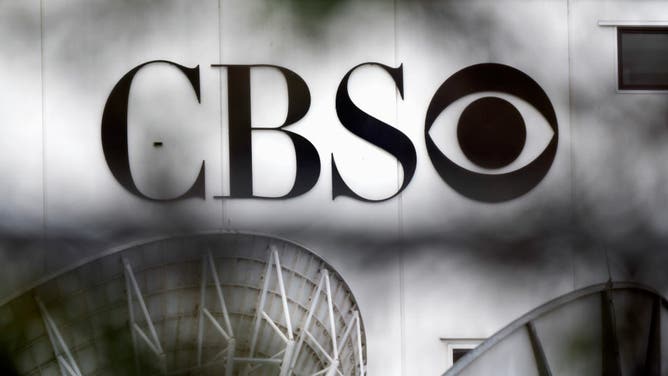
Photo by Ronen Tivony/SOPA Images/LightRocket via Getty Images
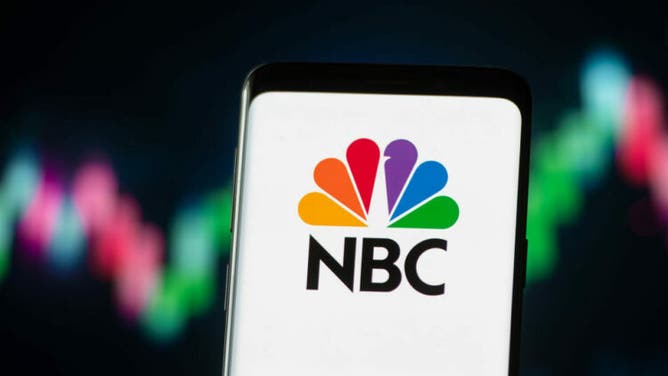
I(Photo Illustration by Mateusz Slodkowski/SOPA Images/LightRocket via Getty Images)
When you combine the value of sports and the value of their existing streaming shows, I think the media lesson is crystal clear: big tech companies should buy the media networks. In particular, Amazon should buy Fox, Apple should buy Disney, Google should buy Comcast, and Netflix should buy Paramount.
It's possible the tech companies and the media companies matching could play out differently than I laid it out above, but the logic here is airtight. The streaming services should own the networks and use the networks to air older episodes of their old shows. It's the ultimate in advertising and cross promotion. Do you think, say, old seasons of "Reacher" and "Lord of the Rings," might do well on Fox? Of course they would, they'd dominate nightly TV ratings.
And that's just two shows.
Great Shows That So Many Have Never Heard Of Need To Be On Network TV
Many of you are far more knowledgeable about streaming shows than I am.
Amazon could put old seasons of its hit shows on Fox as a way to juice their audience for the new seasons on streaming. Just like Paramount did with "Yellowstone." Netflix could reverse the "Breaking Bad" growth arc and air "The Crown," on CBS and I guarantee you it would dominate. (Yes, I watched so I know the show has finished. It's fabulous. There's a ton of people who watch CBS that have no idea "The Crown" ever existed. But I guarantee your grandma would like it as much as I did.)
Do you think some of those new viewers might be willing to pay to get the most updated version of the new shows they'd come to love? I'd bet they would. And how many great streaming shows out there would absolutely dominate, with editing, on network television?
Tons of them!
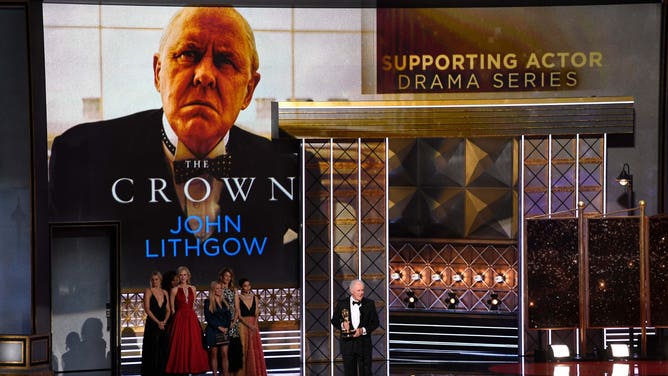
Los Angeles - John Lithgow accepts the award for Supporting Actor In A Drama for his role in the Netflix series ‘The Crown’ during the 69th Emmy Awards at Microsoft Theater in 2017. Robert Hanashiro-USA TODAY Sports
Big Tech Could Package Everything All Together: It's A No-Brainer
And this doesn't even count the sports rights that would be included with these purchases. Fox has the NFL, the World Series, the Big Ten, NASCAR, and more. Disney/ESPN has the SEC, Monday Night Football, the NBA (for now, at least), the college football playoff, MLB and more. NBC and CBS have their own rights packages in sports.
They also have successful ad sales networks that have been selling programming to top advertisers for decades. That matters as many of these streaming companies are now attempting to create ad sales networks for their streaming offerings. Why not use the same ad sales networks that already have relationships with advertisers?
Plus, in buying the networks you would streamline the creation of new shows under one media umbrella, that would create massive efficiencies by itself.
Honestly, it's an absolute no-brainer.
Especially when you look at the collapsing market caps of these TV network's parent companies. Paramount, as I write this on Saturday afternoon, has a market cap of $7.7 billion dollars. Warner Brothers has a market cap of $21 billion. Fox is $13.75 billion. Disney, which is the biggest of the bunch, is $198 billion. Granted you'd have to pay more than these existing market caps, but not a ton more. And all of these media company values are a pinprick of what the tech companies are worth right now.
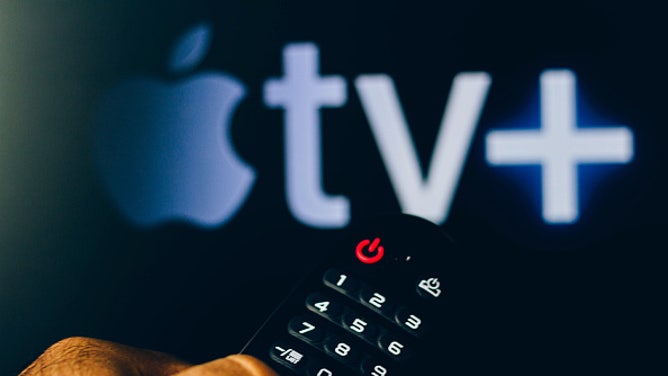
Photo Illustration by Rafael Henrique/SOPA Images/LightRocket via Getty Images
Apple has a market cap of $2.8 trillion. Apple could buy all of Disney with the cash it has right now. Amazon's market cap is $1.8 trillion. It could buy Fox with ease. Google, which owns YouTube, is a $1.8 trillion market cap and Netflix, the smallest of the bunch, is at $253 billion. (There's an argument one of the big tech companies like Apple or Amazon should buy Netflix, but I think Joe Biden's FTC, run by Lina Khan, who believes every corporate merger is an antitrust violation, would strike that down. Of course, Biden is favored to lose the 2024 election right now and any merger of these companies would take over a year to get done, so you could roll the dice this year, announce your merger/acquisition, and gamble you'd get a new FTC chair and a new antitrust review in a Donald Trump administration come January. Regardless, I think Netflix is big enough to be a whale and not a minnow, but maybe I'm wrong and even Netflix is in play.)
So…Which One Will Take the Plunge?
I'm not sure which big tech company is going to move first to make a media acquisition like this, but it's going to happen.
It feels inevitable.
And once one big tech company moves, everyone else is likely to make their own move too.
So the first mover gets the advantage. And its pick of the media litter.
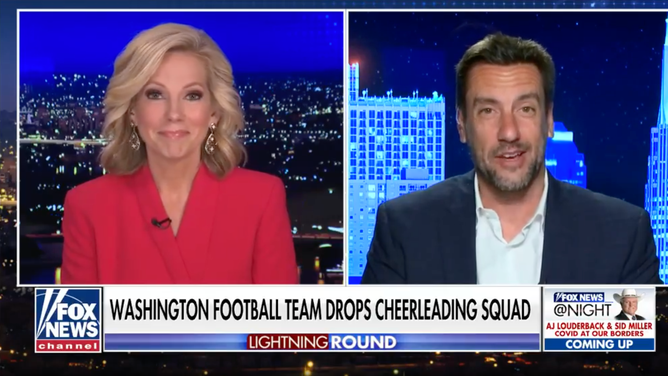
Clay Travis appearing on Fox News Channel.
And, by the way, I don't think these big tech companies will hold all the assets when they make these media company purchases, they'll spin many assets off. For instance, if Amazon bought Fox, they wouldn't want Fox News. They'd want the Fox lot in Los Angeles, which is probably worth several billion by itself, they'd want the Fox Sports assets, and they'd want the Fox broadcast network. Fox News could be easily rolled into News Corp alongside the Wall Street Journal and the New York Post. (Full disclosure, Fox bought OutKick from me in 2021. But no one talks to me about any business decisions like these. This is entirely my own speculation based on surveying the existing media landscape.)
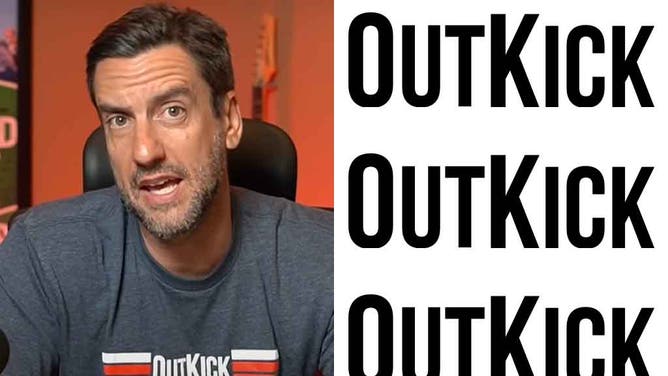
Whoever bought Warner Brothers would want HBO and the sports rights with TNT and the NCAA Tournament, for instance, but I doubt they would want CNN, which they could sell off to some left-wing billionaire to run as his favorite media outlet. The same thing would be true of MSNBC, heck, I'm not even sure there would be a desire for CBS, ABC, and NBC to even stay in the news business to any significant degree. Maybe they could still do their nightly broadcasts, but I suspect these media companies wouldn't see news as a very profitable venture and would mostly move away from it.
What's going to happen, however, is I believe the streaming and the TV network universe is going to recombine. Netflix won streaming, but the battle isn't over. Now comes the recombinations. The age of massive media disruption is here.
And what comes after that?
All these media companies are going to get together and say, "You know what would make a lot of sense, we should bundle all these rights together and let consumers have one subscription bill instead of eight subscription bills."
What's Old Is, Well, New Again
Yeah, we all know that business model, guys.
We called it cable.
Heck, you're already seeing this with the attempt to combine Fox, ESPN, and Warner Brothers into one sports streaming package. But that's just a trial balloon, what I'm talking about is the fundamental paradigm shift that will govern the next generation of media content.
In the meantime, call me crazy, but Paramount, WBD, Fox and Disney may have been beaten down to such an extent that they are screaming buys for individual investors. If I can see the value and the inevitable logic here, at some point the big tech companies are going to as well. (Full disclosure: I own stock in all these companies because I mostly own S&P 500 index funds.)
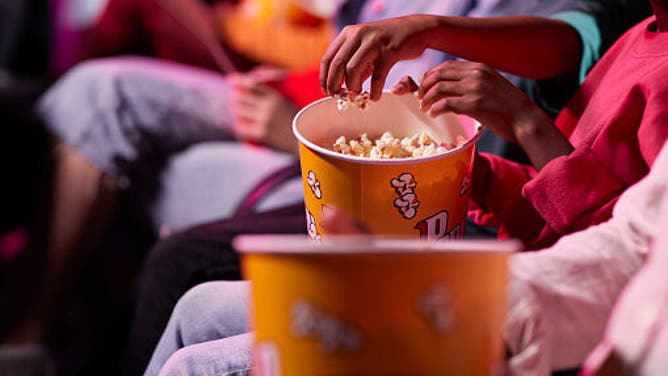
It's not a question of if these big tech companies start making media acquisitions, it's when.
And I'm betting it happens this year.
So who goes first?
Get your popcorn, it's happening.